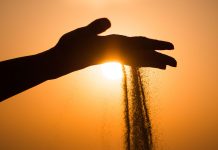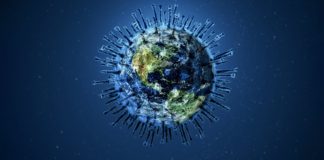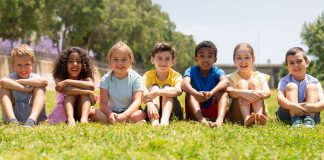An encounter with kindness
Sartre may have been right when he said Hell is other people. Yet, for some, their first step toward Heaven is meeting the God who shelters in someone else's soul.
A Bible for everyone
Little Welsh girl Mary Jones anxiously walked the 40 kilometres. She couldn't wait to buy a Bible in her language, as she had been saving for it for more than six years. But when she reached the shop of Mr Charles, her pastor and teacher, she found with despair that all the Bibles were either sold or already spoken for.
Understanding breast cancer
Breast cancer claims the lives of more women than most other forms of cancer. In the United States, the incidence of this disease in women is about one in eight, which is nearly 13 per cent, while in Australia and New Zealand it’s slightly lower at one in nine (11 per cent).
“I write with a smile on my face”
It's probably been 15 years, but ever since I first read Nathan Brown's articles I've been struck by the conciseness and frankness of his writing, the courage with which he tackles the prejudices and superficialities of religion, and the naturalness with which he invites his readers to live a spiritual life worthy of God's generous offer.
COVID-19 and the great question: Why?
The danger of the novel coronavirus has given us pause to reflect. As Christian believers, apart from praying, we are expected to examine and question our beliefs in this time, and to seek answers which are rooted in the perspective of the Holy Scriptures.
The stranger in your home
You must run. You only have a few days, perhaps only minutes, to pack all the things you can take with you. You don’t know whether you’ll arrive at a safer place, or whether anyone will welcome you, or whether you’ll ever return home.
Are you being watched?
On 17 March 2018, the world felt naked thanks to social media giant Facebook. It was confirmed that 87 million users’ personal information had been shared through an app developed by British consulting firm Cambridge Analytica.
Shame and its traps
I must admit, I was a shy child. Shame is a lesson well learned. However, I don’t know if it is always correctly learned.
Telemedicine. How to get the most out of it
While an increasing number of family physicians and private health networks offer online consultations, it's helpful to better understand telemedicine, the opportunities it creates and its limitations.
“One Thousand Gifts: A dare to live fully right where you are”
"One Thousand Gifts" describes the beautiful revolt of a soul that does not want to be crippled by what it has lost, but to pierce its own suffering like an arrow springing from the bow of grace, a leitmotif of the whole book.
Raising contented children
Kayley lies on the floor, throwing a tantrum because she only has pink flashing-heel shoes and she wants a blue pair to match her new jeans. John sits on the floor, happily playing with a few blocks of wood. His dad found them lying in the street, brought them home and sanded them smooth. Yesterday he stacked them up to build a castle....
Circumstantial faith
As a believer—for present purposes, defined simply as one who believes—I have often wondered what and how I would believe differently had I been born into a family and culture with different beliefs. Obviously, I believe what I believe because I believe it to include truth, but would I have believed in this same truth if I had not been raised and taught...
The appeal to novelty: How can it be faulty when it’s so bright and shiny?
To make an argument by appealing to the novelty of an idea— to the innovation it brings to a certain area—is not necessarily wrong. The visionary thinker Alvin Toffler coined the wonderful phrase nostalgia for the future, referring to his appreciation of the adventure the future promises through the desire many of us have to merge with 'the new' that is still developing...
The original meaning
Before I started looking for the meaning of life, I thought I had already found it. Or, that it had been given to me. In the world I came from, the road was clearly laid out. My life's major events were all mapped out, and precious little was negotiable.
Pets: Our help for a better life
I've always liked pets, but from a distance. Raised by a mother convinced that animals cannot possibly live under the same roof as people, I adopted a similar opinion, which I kept for many years, even if a great number of people tried to prove me wrong.


























